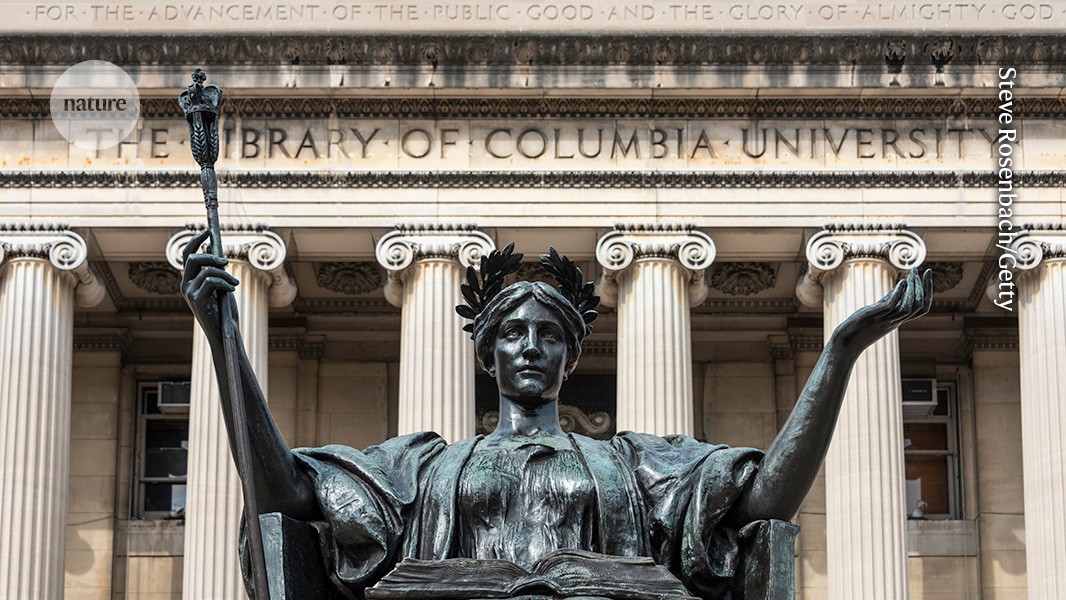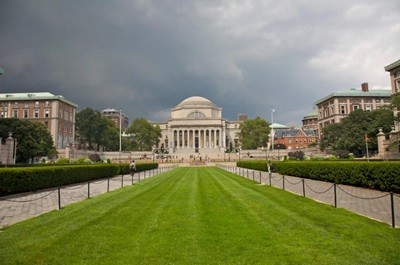Donna Farber, an immunologist at Columbia University, is eagerly waiting for funding to her laboratory to restart so that she can hire some new postdocs — something she hasn’t been able to do since the US government froze payments on her National Institutes of Health research grant in March.
Trump administration sued over huge funding cuts at Columbia University
She and other scientists at the university say they are relieved, yet unsettled, after last week’s announcement that Columbia has reached an agreement with the US government to restore its research funding in exchange for an increase in federal oversight of the institution. A number of Columbia researchers told Nature that they feel a sense of foreboding about their future.
The 23 July settlement means that Columbia, in New York City, will pay more than US$200 million to the government over three years to end multiple federal investigations that revolve mainly around allegations of antisemitism on campus in the wake of protests over Israel’s invasion of Gaza. Columbia does not admit wrongdoing, but agreed to the settlement to restore $400 million in federal grants and $1.3 billion in broader federal funding, said its acting president, Claire Shipman, in a statement. The decision has been met with mixed feelings among students, researchers and faculty members at Columbia, some of whom say the settlement is welcome so that campus life can move forwards. Others, including Farber, see it as a “ransom to release funds”.
Now, researchers are picking up the pieces of their disrupted careers and figuring out how to get back to work.
Although she has received no information about when her restored funding might kick in, Farber is most eager to provide her team with more reliable pay. Since research grants were terminated or frozen, Columbia has paid for some researchers’ salaries itself, but Farber has had to let team members go. The situation wasn’t “sustainable at all”, so Columbia had to make a deal, she says. “The university was up against a wall and needed to restore the flow of funds.”
‘Welcome news’
A postdoctoral researcher at the university, who asked to remain anonymous out of fear of retaliation, says her fellow early-career researchers have been the most affected by the actions that the administration of US President Donald Trump has taken against Columbia. “I’ve seen postdocs leave academia” because of cancelled and frozen grants, she says. “There’s no certainty in funding or long-term stability.”
‘My career is over’: Columbia University scientists hit hard by Trump team’s cuts
The researcher’s own salary had been coming from a fellowship that was cancelled. Eventually, she received some financial support from the university. Now she, too, will have her grant reinstated, but she has not been told how long this will take. The good news, she says, is that “I can be supported in doing my research for a few more years while I’m figuring out my next steps — that’s incredibly valuable.”
Dietrich Egli, a developmental cell biologist at Columbia, was able to keep his team intact despite the grant freeze, but felt the loss of funds in other ways. For instance, he had to pay for a trip to a conference in Hong Kong out of his own pocket. “You have to look for your own solution, but these solutions aren’t sustainable,” he says. “The funding coming back is very, very welcome news.”
The government’s agreement to end its investigations into Columbia includes dropping allegations that the university has violated a civil-rights law. In exchange, Columbia must provide the US Department of Education with information about student admissions and disciplinary actions, and increase scrutiny of applicants from countries outside the United States, among other changes. “The government understands the importance of science funding to universities like Columbia and is using it as a weapon to bend the institution to the government will,” says Brendan Cantwell, who studies higher-education policy at Michigan State University in East Lansing.
The US Department of Education did not respond to Nature’s request for comment.




